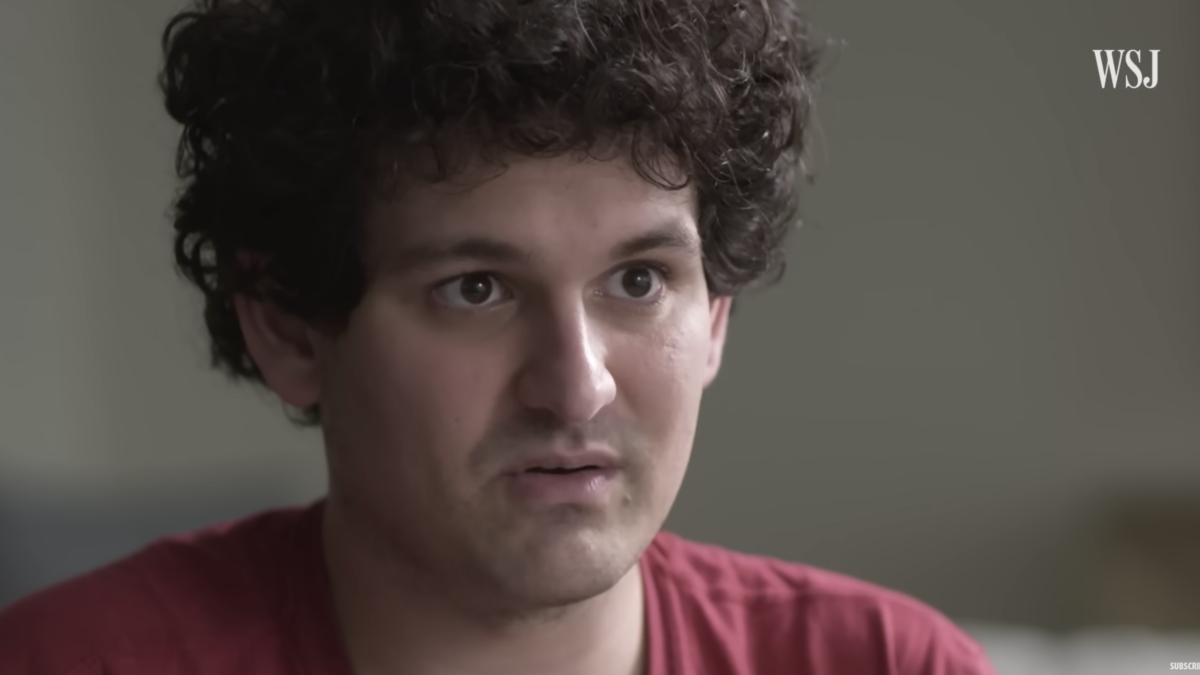When Sam Bankman-Fried (SBF) needed a Bahamas compound, he hired Alfia White and Ian Rosenfield. Neither had ever designed an office building, but they were given a budget of $250-300 million and the direction: “You’re the architects. I don’t have any idea.” Rosenfield was actually an old classmate of SBF’s. He was surprised to learn the kid who in high school had almost no friends, used a rolling backpack, and lived for math camp had become one of the richest people in the world. When Bankman-Fried arrived for the groundbreaking ceremony with cargo shorts, a wrinkled T-shirt, and droopy white socks, Rosenfield realized, “Same guy.”
Michael Lewis’ latest book, “Going Infinite,” contains all sorts of these behind-the-scenes moments that show how a kid went from nothing to billionaire and back again without ever really growing up. Lewis hopes his book, which came out the same day Sam Bankman-Fried’s trial began, will tell a better story than the one the lawyers tell in the courtroom. SBF stands accused of seven counts of fraud and conspiracy in connection with the collapse of his crypto exchange FTX, with prosecutors alleging he stole billions from FTX customers and used them for personal reasons and to cover losses at his crypto hedge fund, Alameda Research.
His defense team, and Michael Lewis to some extent, present SBF as a math nerd who got in over his head. FTX was growing at an unimaginable pace, and he couldn’t keep up. Of course, there’s SBF’s profligate spending to explain: $40 million in the 2022 election cycle and a $16.4 million Bahamas mansion for his parents, to name a couple. And there’s his fellow executives Gary Wang and Caroline Ellison who have already pled guilty and will likely be key witnesses in his trial. So while Lewis’ book is entertaining and avoids an outright pronouncement of guilt, SBF’s pattern of reckless behavior makes his defense look dubious.
From Phony Altruist to Undisputed Leader
In the early days of Alameda Research, the first crypto company SBF founded, they set up a complex crypto program that made a quarter of a million trades a day. It moved money between Ripple and Bitcoin and the U.S. and South Korea to exploit a price discrepancy between the Korean and American crypto exchanges. At one point, $4 million worth of Ripple went missing. Shortly after, the gaps between the Asian and U.S. exchanges closed, leading to losses of half a million dollars a day. SBF was sanguine, but his fellow managers panicked.
They tried to force him out, arguing that he had recruited Effective Altruists to his new firm but ended up wasting money and tarnishing the EA legacy. Since Effective Altruists sought to make money in order to give it away, financial losses had an added moral dimension. Eventually, his entire management team and half his employees walked out the door with severance between $1 million and $2 million. Shortly after, he found the missing coins.
A bug in the system had left the coins piling up in an exchange without any identification. When Bankman-Fried called the exchange to explain who the coins belonged to, he was transferred a few times before a voice came on, “Are you the f-cker who sent us like twenty million Ripple tokens? How the f-ck are you only calling us now?” And suddenly, Sam went from a phony effective altruist to a leader deserving of absolute trust, even when his methods seem irresponsible.
SBF treated everything as a math problem, from trades, to people, to his career. Thus, he concluded: “Fault is just a construct of human society,” people are a “probability distribution of their future behavior,” and his high-paying banking job was likely not his maximal impact job since it was just his first one out of college. So he quit without any plan.
His social skills bordered on sociopathic. He seldom feels happiness or empathy, so he taught himself to smile, forcing his mouth and eyes to move in ways they didn’t naturally. Previously coming across as callous, he began saying, “Yuuuuppp!” to almost anything someone said, even when he usually found it idiotic. His assessment on the trade-off of faking niceness: “It comes with a cost, but it’s on balance worth it.”
A Kid Over His Skis
Although FTX couldn’t survive a sudden run, Lewis argues that’s because Alameda Research had various assets tied up in illiquid crypto investments and FTT tokens, and Binance’s liquidation of their FTT store led to a precipitous drop in the token’s value. SBF’s less the next Bernie Madoff than an undisciplined kid who got over his skis. To that point, it’s worth noting that despite his fabulous wealth, he didn’t really spend it on himself.
His uniform of cargo shorts, a T-shirt, New Balance sneakers, and oversized white socks was only disrupted for trips to Washington, D.C. Even then, he prepared for a dinner meeting with Sen. Mitch McConnell by bringing a balled-up, wrinkled suit and explaining to Lewis: “You need to call him ‘Leader’ or ‘Leader McConnell’ or ‘Mister Leader.’ I rehearsed it to make sure I didn’t f-ck it up. Especially since it’s so tempting to say, ‘Dear Leader.’” As he talked, he “tossed popcorn in his mouth, in a herky-jerky motion that resembled a clumsy lay-up. He was shooting around 60 percent, and the popcorn was flying everywhere.” This combination of ludicrous wealth and lack of sophistication went from his draw to his Achilles heel.
When the money was flowing, everyone wanted a piece of the most openhanded billionaire of all time. His sponsorships were laughably overpriced. For 20 hours of Tom Brady’s time over three years, he paid $55 million. For a 60-second Super Bowl spot, he paid Larry David $10 million, and he budgeted $25 million for the ad itself. He signed Kevin O’Leary to a $15.7 million deal for “twenty service hours, twenty social posts, one virtual lunch and fifty autographs.”
This sort of spending might seem at odds with his EA principles. Shouldn’t he scrupulously penny-pinch since every dollar that doesn’t go to Tom Brady could go to a needy child? Lewis is notably quiet on this obvious lapse in SBF’s principles: He is reckless with money when wisely donating it is his sole ethical imperative.
Indeed, in an interview with Vox during his house arrest, SBF was asked whether his EA was a front since he seemed to really view life as more a game of winners and losers rather than right and wrong. With his trademark bluntness, Bankman-Fried DM’d back, “ya hehe I had to be. It’s what reputations are made of, to some extent. I feel bad for those who get f-cked by it. By this dumb game we woke westerners play where we say all the right shibboleths and so everyone likes us.”
Bankman-Fried hit all the marks: Never Trumper, vegan, rationalist EA poster boy, and he took in credulous elites.
No Internal Controls
He was surrounded by adoring followers and venture capitalists. One notable holdout was Elon Musk. When SBF called Musk regarding a Twitter deal, Musk told his biographer Walter Isaacson, “My bullsh-t detector went off like red alert on a Geiger counter. He was talking like he was on speed or Adderall, a mile a minute. I thought he was supposed to be asking me questions about the deal, but he kept telling me the things he was doing.” The deal fell apart.
Oddly, Elon Musk is one of the few adults you meet in the book. Most others, as one FTX employee put it, didn’t ask questions because “Sam’s oddness mixed with just how smart he was allowed you to wave away a lot of the concerns.” So when he was pitching Sequoia Capital on investing in FTX and playing “League of Legends” throughout the meeting, rather than criticize the rudeness and absurdity of his gaming, Sequoia touted it in their profile of him. He had a board of directors, technically, but in his words, it was “something with three people on it” whose names he couldn’t remember, whose main job is “DocuSigning at three a.m.”
Sam Bankman-Fried stood for crypto’s burgeoning respectability, the triumph of rationalism, and a disruptor that some speculated might become the first trillionaire. His intelligence, oddness, and wealth made him into something of a god, with no need for oversight or adults. To look at the wreckage FTX wrought and now be told its wunderkind founder simply “got in over his head,” that’s a tall tale, even for Michael Lewis.









